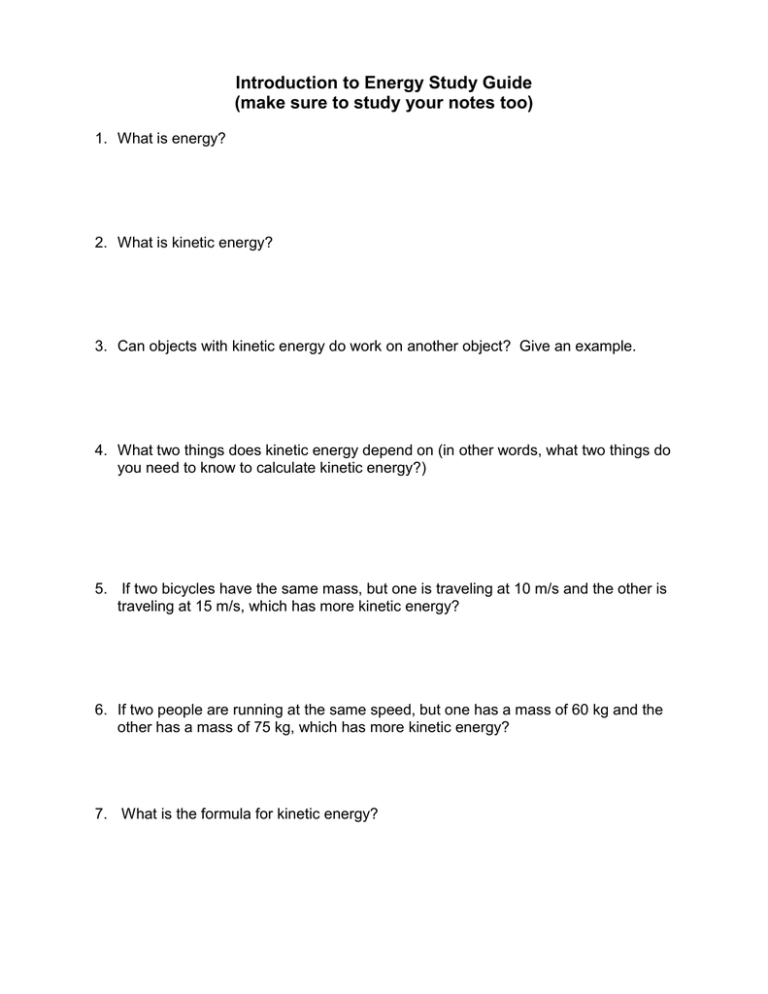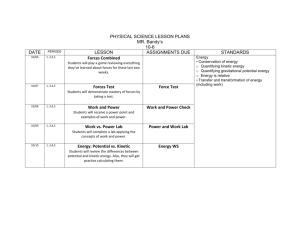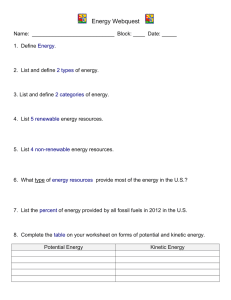Introduction to Energy Study Guide
advertisement

Introduction to Energy Study Guide (make sure to study your notes too) 1. What is energy? 2. What is kinetic energy? 3. Can objects with kinetic energy do work on another object? Give an example. 4. What two things does kinetic energy depend on (in other words, what two things do you need to know to calculate kinetic energy?) 5. If two bicycles have the same mass, but one is traveling at 10 m/s and the other is traveling at 15 m/s, which has more kinetic energy? 6. If two people are running at the same speed, but one has a mass of 60 kg and the other has a mass of 75 kg, which has more kinetic energy? 7. What is the formula for kinetic energy? 8. How much kinetic energy does a 55 kg object have that is traveling 20 m/s due north? 9. What is potential energy? 10. What does it mean when we say potential energy depends on the height of the object? Give an example and illustrate it. 11. What does it mean when we say potential energy depends on the shape of an object? Give an example. 12. What is gravitational potential energy? 13. What is the formula for gravitational potential energy? 14. How much gravitational potential energy would an object that weighs 60 N have if it were raised 10 m off the ground? 15. At which point does this pendulum have the most KE? At which point does the pendulum have the most PE? At point 4, what is happening to the KE and PE? 16. Draw a pendulum, and show how the potential energy and kinetic energy change as it swings. 17. What is an energy conversion? 18. Show how we would use symbols to describe the energy conversions that take place in the following machines: alarm clock battery light bulb blender 19. What is the law of conservation of energy? 20. Whenever an energy conversion takes place, one form of energy is always created. What form is that? 21. Where does the thermal energy from energy conversions go? 22. Is it possible to have a machine that keeps moving forever without any source of energy? Why or why not? 23. What is nuclear energy? 24. What are the 2 ways that nuclear energy can be released? 25. What is fission? 26. What is fusion? 27. In nuclear reactions, a small (minute) amount of matter produces a large amount of what? 28. Name a few positive effects of using nuclear energy. 29. Name a few negative effects of using nuclear energy.


